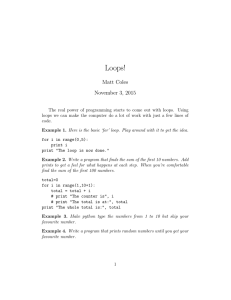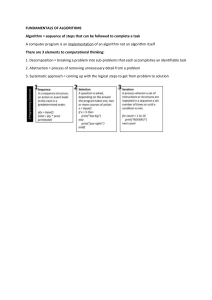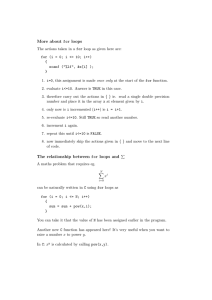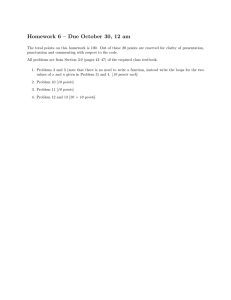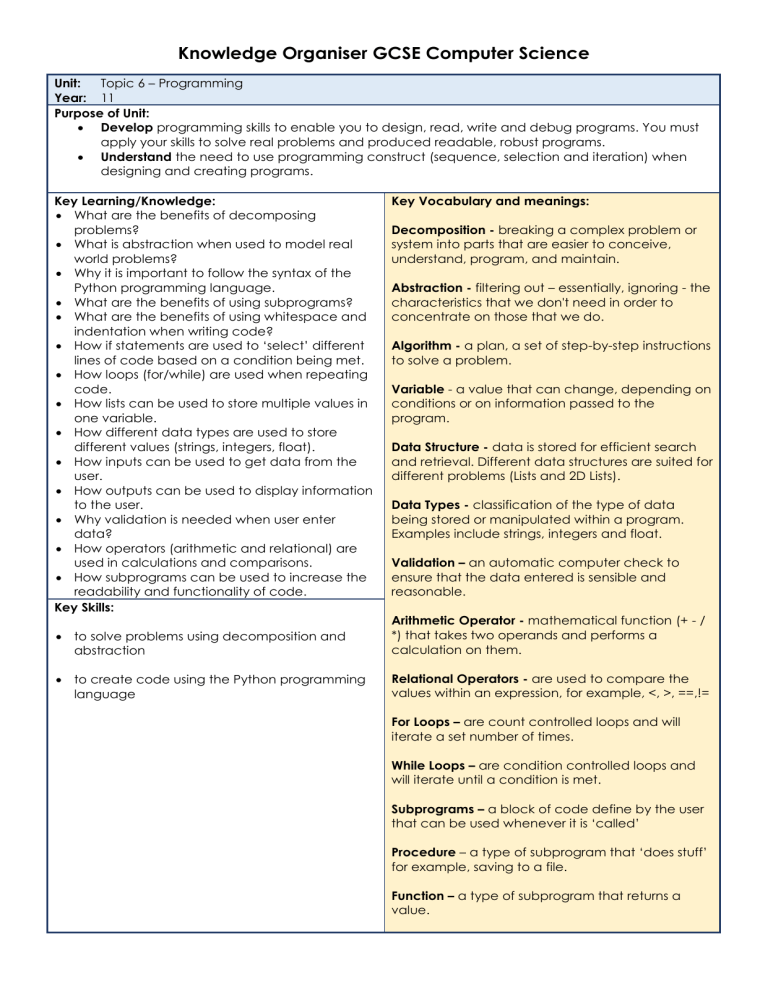
Knowledge Organiser GCSE Computer Science Unit: Topic 6 – Programming Year: 11 Purpose of Unit: Develop programming skills to enable you to design, read, write and debug programs. You must apply your skills to solve real problems and produced readable, robust programs. Understand the need to use programming construct (sequence, selection and iteration) when designing and creating programs. Key Learning/Knowledge: What are the benefits of decomposing problems? What is abstraction when used to model real world problems? Why it is important to follow the syntax of the Python programming language. What are the benefits of using subprograms? What are the benefits of using whitespace and indentation when writing code? How if statements are used to ‘select’ different lines of code based on a condition being met. How loops (for/while) are used when repeating code. How lists can be used to store multiple values in one variable. How different data types are used to store different values (strings, integers, float). How inputs can be used to get data from the user. How outputs can be used to display information to the user. Why validation is needed when user enter data? How operators (arithmetic and relational) are used in calculations and comparisons. How subprograms can be used to increase the readability and functionality of code. Key Skills: Key Vocabulary and meanings: Decomposition - breaking a complex problem or system into parts that are easier to conceive, understand, program, and maintain. Abstraction - filtering out – essentially, ignoring - the characteristics that we don't need in order to concentrate on those that we do. Algorithm - a plan, a set of step-by-step instructions to solve a problem. Variable - a value that can change, depending on conditions or on information passed to the program. Data Structure - data is stored for efficient search and retrieval. Different data structures are suited for different problems (Lists and 2D Lists). Data Types - classification of the type of data being stored or manipulated within a program. Examples include strings, integers and float. Validation – an automatic computer check to ensure that the data entered is sensible and reasonable. to solve problems using decomposition and abstraction Arithmetic Operator - mathematical function (+ - / *) that takes two operands and performs a calculation on them. to create code using the Python programming language Relational Operators - are used to compare the values within an expression, for example, <, >, ==,!= For Loops – are count controlled loops and will iterate a set number of times. While Loops – are condition controlled loops and will iterate until a condition is met. Subprograms – a block of code define by the user that can be used whenever it is ‘called’ Procedure – a type of subprogram that ‘does stuff’ for example, saving to a file. Function – a type of subprogram that returns a value. Local Variable – a variable that is only available within the scope of the subprogram it is in. Global Variable – a variable that is available within the scope of the whole program and can be accessed from anywhere. Links to prior knowledge/learning: Topic 1 Computational Thinking content Topic 6 Programming content Cross Curricular link/ World Issues Construction of accurate sentences which are linked to the specific topic Computational thinking skills (decomposition/abstraction) that can be used across the curriculum Problem solving using logical reasoning Modelling real world scenarios
